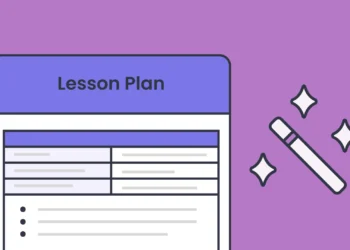School holidays provide a valuable opportunity for parents to bond with their children, reinforce learning, and instil important life skills outside the formal classroom setting. However, without proper guidance, children may end up spending the entire holiday idle, watching television excessively, or glued to their phones. As a teacher in Nigeria, I offer the following practical and enriching activities that parents can use to engage their children during the holidays.
1. Encourage a Daily Reading Habit
Reading helps children develop vocabulary, comprehension and critical thinking. Parents can buy age-appropriate books or borrow from local libraries where available. Books by Nigerian authors such as Chinua Achebe’s “Chike and the River” or Mabel Segun’s “My Father’s Daughter” are excellent options.
2. Assign Simple Home Responsibilities
Give children age-appropriate chores such as sweeping, watering plants, or arranging their clothes. This teaches responsibility and discipline. For instance, a 10-year-old can be in charge of tidying the sitting room each morning.
3. Visit Local Museums or Cultural Centres
Places like the National Museum in Lagos or the Nike Art Gallery offer educational experiences that expose children to Nigerian history, art and culture.
4. Organise Family Reading or Storytelling Nights
Parents can dedicate time in the evening to tell folk stories from their childhood or read aloud to their children. This helps to build listening skills and fosters family bonding.
5. Introduce Educational Mobile Apps and Games
While screen time should be limited, children can still benefit from apps such as Toca Life World, Duolingo for language learning, or the uLesson app, which features Nigerian curriculum-based video lessons.
6. Involve Children in Cooking
Allowing children to assist with cooking teaches them maths (through measuring ingredients), science (through mixing and heating), and Nigerian culture. A child can learn how to make jollof rice, puff-puff, or egusi soup.
7. Encourage Creative Writing and Journaling
Provide notebooks where children can write short stories, poems, or keep a holiday journal. They could describe their day, write letters to imaginary characters, or invent adventure tales.
8. Take Them to the Market
A visit to the local market can be both fun and educational. Teach them about pricing, bargaining, measuring in cups or mudu, and identifying vegetables and fruits like ugwu, yam, or plantain.
9. Organise Family Bible Study or Quran Reading
Religious engagement fosters moral development. Parents can create routines where children read and discuss verses from the Bible or Quran, depending on the family’s faith.
10. Attend Free Community Events
Watch out for community programmes such as church summer camps, mosque youth activities, free holiday lessons, or sports competitions in your local area.
11. Enrol Them in Skill-Based Holiday Programmes
There are affordable holiday bootcamps where children can learn tailoring, bead-making, coding, or even robotics. In cities like Ibadan or Abuja, such programmes often take place in schools or tech hubs.
12. Watch and Discuss Educational TV Shows Together
Instead of just cartoons, children can watch educational shows such as NTA’s “Tales by Moonlight,” Discovery Channel documentaries, or nature-focused programmes. Parents should engage children with questions afterward.
13. Teach Them Local Languages
Holidays are a good time to teach or improve fluency in native languages like Yoruba, Igbo or Hausa. Parents can use songs, proverbs or daily conversations for practice.
14. Encourage Gardening
Even with a small space or containers, children can grow tomatoes, okra, or scent leaves. This teaches patience, responsibility, and the basics of biology.
15. Support Business and Entrepreneurial Play
Children can simulate shops, banks or markets at home using play money and household items. Some may want to sell snacks like chin chin to neighbours under supervision, building confidence and maths skills.
16. Teach Basic Sewing or Handcraft
Simple skills like threading a needle, sewing a button, or making paper crafts improve hand–eye coordination and creativity. Parents can provide old clothes or Ankara fabric for practice.
17. Plan Educational Outings
Take children on outings to farms, local courts, post offices or fire stations if accessible. This gives them practical knowledge of how things work in society.
18. Limit Excessive Screen Time
Parents should not allow unregulated hours of television or smartphone use. Instead, introduce schedules where screen time is earned through completing chores or learning tasks.
19. Use Family Time for Moral Lessons
Discuss real-life topics such as honesty, hard work, respect for elders, and consequences of bad behaviour using relatable stories or personal experiences.
20. Encourage Letter Writing or Drawing for Grandparents
Children can write letters or draw pictures for their grandparents or extended family. This builds emotional intelligence, gratitude, and writing skills.
In conclusion, school holidays need not be wasted. With a bit of planning, parents can turn the period into a rich, educative and memorable time for their children. These activities do not require large budgets but only time, intention and creativity. Let’s use the holidays not just to rest, but to raise confident, informed, and responsible future leaders.




















































































 EduTimes Africa, a product of Education Times Africa, is a magazine publication that aims to lend its support to close the yawning gap in Africa's educational development.
EduTimes Africa, a product of Education Times Africa, is a magazine publication that aims to lend its support to close the yawning gap in Africa's educational development.